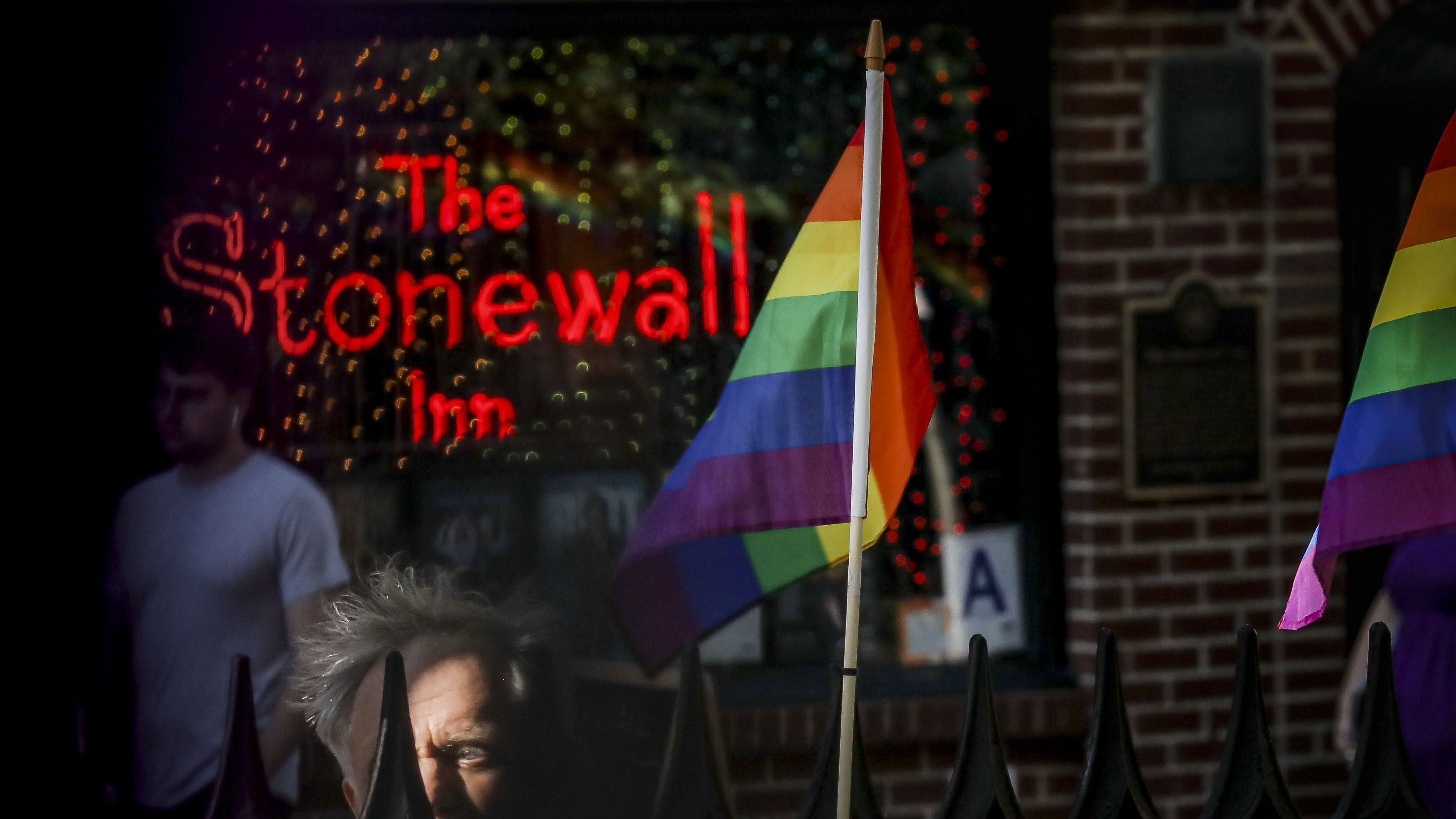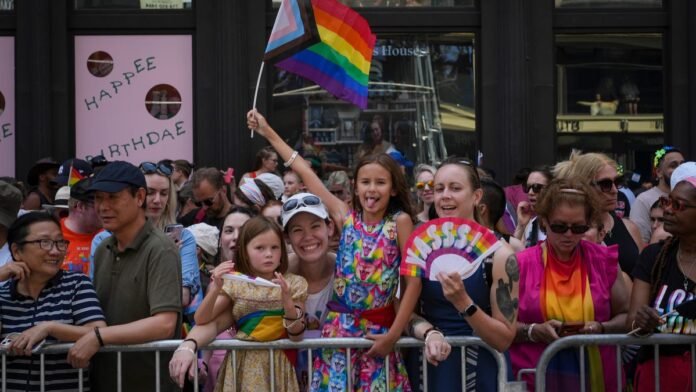As Pride Month fades away and the summer heat blazes on, I’m left thinking about what queer resistance should look like during a second Donald Trump presidency.

LGBTQ+ pride under pressure: Fighting back, then and now
They fought at Stonewall back in 1969. Now they’re fighting to keep their place in the history books.
On the last weekend in June, I walked down Fifth Avenue alongside people dressed in their best rainbow regalia and parade floats blasting Beyoncé for New York City’s annual Pride March. Commemorating the June 28 Stonewall uprisings, the march has taken place every year since 1970.
But most of the LGBTQ+ people I am in community with were far away from the colorful, bank-friendly festivities. There’s sort of an unspoken rule of pride in the city: The annual Dyke March and Queer Liberation March over pride weekend are for the politically active members of the community, while the city’s official celebration is for corporations.
But as Pride Month fades away and the summer heat blazes on, I’m left thinking about what queer resistance should look like during a second Donald Trump presidency. Will we miss corporations as they become more squeamish about supporting the LGBTQ+ community? Or is it time for us to reclaim our history and show people that we are a force to be reckoned with?
LGBTQ+ folks know the fight is just starting
If you didn’t know, Trump spent June antagonizing the LGBTQ+ community. That month, his administration announced that the 988 National Suicide & Crisis Lifeline would be severing ties with LGBTQ+ organizations and that Harvey Milk was no longer worth honoring.
The transgender community was specifically targeted. The U.S. Supreme Court ruled that trans youth did not have a right to gender-affirming care. Trump threatened to pull funding from California because a single 16-year-old girl competed in a high school track and field state championship. The Stonewall National Monument didn’t put up any transgender pride flags to commemorate Pride Month, even though trans people were central to the fight for liberation that took place all those years ago.
This has affected how corporations are willing to interact with the community, too. NYC Pride March and other pride celebrations across the country saw corporate donors back out of supporting the events. Target and other stores pushed their pride collections to the side.
Sure, we’re still visible, but the political climate is telling us it’s better to be seen and not heard.
Now more than ever, we must remember the origins of why we celebrate the month of June. It’s not just about rainbows and glitter. It’s about defiance. It’s about our rights.
Rainbow capitalism won’t save us. Community will.
After the march, I made my way to PrideFest, the street fair hosted by NYC Pride. “RuPaul’s Drag Race” alums Jan Sport and Jackie Cox were emceeing the main stage; the dating app Grindr had a yellow bus parked down the street. Folks were sipping various frozen concoctions out of tall, skinny cups and sweating under the June sun.
I spotted a miniature poodle named Scuttle, dyed purple and orange and wearing a rainbow costume, and stopped to talk to his owner, Zach Aaronson. Aaronson was also dressed for the occasion, sporting a rainbow skirt and matching dyed beard.
“The experiences that we’ve had this month show you that you’re not alone, that you can express yourself and live outside of the binary all year,” Aaronson, 35, of Manhattan, told me.
Maybe that’s the true beauty of Pride Month in its current form – it gives people a springboard to jump from, so that they can be themselves all year long. As I was walking to exit the festival, I spotted Emily Clark, 18, of Staten Island, who had “Baby’s first Pride” written in pen on her arm. She smiled as she told me how supportive and loving everyone she’d met that day had been.
I still have my qualms about rainbow capitalism and the way pride has been reduced to a party rather than a protest. I don’t believe corporations will save us – if it weren’t profitable to be aligned with the LGBTQ+ community, their support would disappear. For some companies, it already has.
At the same time, I feel lucky. Lucky that I have found community in New York City, lucky that I stopped being “straight” years ago. Lucky that my mother and father put up a pride flag outside their home in my small, conservative hometown. Lucky that I’m even able to critique what pride has become, thanks to what pride once was.
None of us stop being gay just because June is over and Target is no longer selling rainbow T-shirts with cutesy slogans. None of us will go back into the closet when J.P. Morgan is no longer sponsoring a float. We don’t need your performative activism on our behalf. We are here, in spite of it all, and we have something to say.
Follow USA TODAY columnist Sara Pequeño on X, formerly Twitter: @sara__pequeno


























